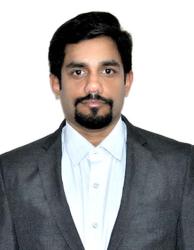In From Dhyan to Dhan – Indian Hockey – Sudden Death of Extra Time: A Parable of Indian Hockey Through 94 Years and 8 Gold Medals, Shyamal Bhattacharjee delves into the often untold aspects of India’s field hockey journey.
It is challenging to tell the story of Indian hockey from 1926 to today. It has been a rollercoaster of triumphs and setbacks amid relentless passion for the sport that has defined the nation’s sporting legacy. So, what inspired Shyamal Bhattacharjee to write a comprehensive exposé of Indian field hockey?
Shyamal Bhattacharjee: I accidentally met Major Dhyan Chand at his residence on May 14th, 1975, at Jhansi. Some talks with him turned INTENSIVE, and I decided then that I should be writing a book on hockey. He asked me to research Indian Hockey for 47 years before writing it. I studied and researched everything about Indian hockey for 47 years before I finished this edifice on Indian hockey.
He then discussed a chapter in the book that delves into the racial and cultural tensions associated with Indian hockey. “I feel It only laid and sowed the seeds that went on to create the chasm of multiple differences within Indian hockey,” he said, “which snowballed itself into the Fire Of Fury, which, in a protracted manner, ultimately killed Indian hockey. Partiality became the weapon of the selection of the team since.”
Many believe India’s first Olympic silver at Rome in 1960 was pivotal in Indian hockey’s decline. The author, who wrote in detail about it in his book, discussed the factors that contributed to India’s shocking failure at that time. He elaborated: “The Indian team at Rome has many a chink that should be knifed immediately. However, Soft Corner And Emotions came into being, and the performance affected the team. We lost to a skilled and trained Pakistani side, which was ebullient at Rome.”
My conversation with Shyamal Bhattacharjee covered many other topics, too.

Joint captain Gurbax Singh exudes after Balbir Garewal scores the winner to win the Bronze Medal in 1968
Ravi: In your book, you explore the tumultuous journey of Indian field hockey. What do you believe are the critical turning points or events that shaped this journey?
Shyamal Bhattacharjee: Three pivotal moments shaped Indian hockey: 1) India vs. Germany Finals in the 1936 Berlin Olympics, 2) the fall of Indian hockey at Rome in 1960, and 3) the turn of Indian hockey from being snatched from Punjab in 1968 by Inam-ur Rahman to Indian Airlines aided by K D Singh Babu.
Ravi: Your book also discusses the dark days of corruption and neglect in Indian hockey. Could you highlight some of the internal conflicts and administrative failures that played a role in this decline?
Shyamal Bhattacharjee: You know what, the internal conflicts in those days were due to the institutions taking over and placing the money to I.H.F. to run the game. Each wanted his share as a preference. Regionalism and castism took the saddle with it, resulting in Catastrophic.
Ravi: The chapter “Metamorphosis” examines India’s recent efforts to rejuvenate its hockey legacy. Can you share some key strategies and initiatives instrumental in this transformation?
Shyamal Bhattacharjee: No, there was nothing that was done to put Indian Hockey to its place in the right earnest. Some efforts were made to inspire the players to promote the region they hailed from to improve hockey, but it proved otherwise.
Ravi: You address the decline of hockey in India in your book. Could you discuss the societal and infrastructural challenges contributing to this decline?
Shyamal Bhattacharjee: I discussed this in-depth and in detail in a 56-page chapter in my book. I am sure the readers will enjoy reading it.
Ravi: Indian women’s hockey is often overlooked, but your book highlights their journey. What inspired you to highlight the struggles and achievements of the Indian women’s hockey team?
Shyamal Bhattacharjee: Somewhere deep in my mind, I still feel Indian Eves are still looked downwards and constantly subjected to the brutalities of mental harassment. Within that sphere, it was such a laudable performance for India to finish fourth in the inaugural World Cup Eves Hockey and at the Olympics in Moscow in 1980. I decided to give them the space they deserve, which is a forgotten chapter as human memory is short.

Surmounted by a host of defenders, Dhaynchand moves to the French goal in India’s 10-0 win in 1936. Dhyan Chands scored four of those goals.
Ravi: Chapters of “Pearls in the Oyster” and “Seven Wonders of Indian Hockey” discuss India’s most significant matters. Could you share some stories or individuals from these chapters that stood out as symbols of dedication and passion?
Shyamal Bhattacharjee: It was an arduous task opposite to ardent to select those players, and it took years of research and studies to bring those names. Those involved in petty politics in hockey as players were left out. The example was Gurbux Singh from Bengal, an outstanding world-class right half. The ones chosen were and are an example of ostentatious hockey players, and their records speak for themselves.
Ravi: Your book concludes by questioning societal attitudes towards hockey in India. What changes are necessary to give sports like hockey the recognition they deserve in a cricket-dominated nation?
Shyamal Bhattacharjee: This will never change as we are a nation with a fragile mentality and self-destruction propensity. We are bogged by many factors, including poor physicality, which cannot be removed or erased. We can never be a king of this game. When you cannot bestow India’s highest civilian award, The Bharat Ratna, to India’s greatest athlete, Dada Dhyan Chand, what and where do you expect this game to be headed?
















